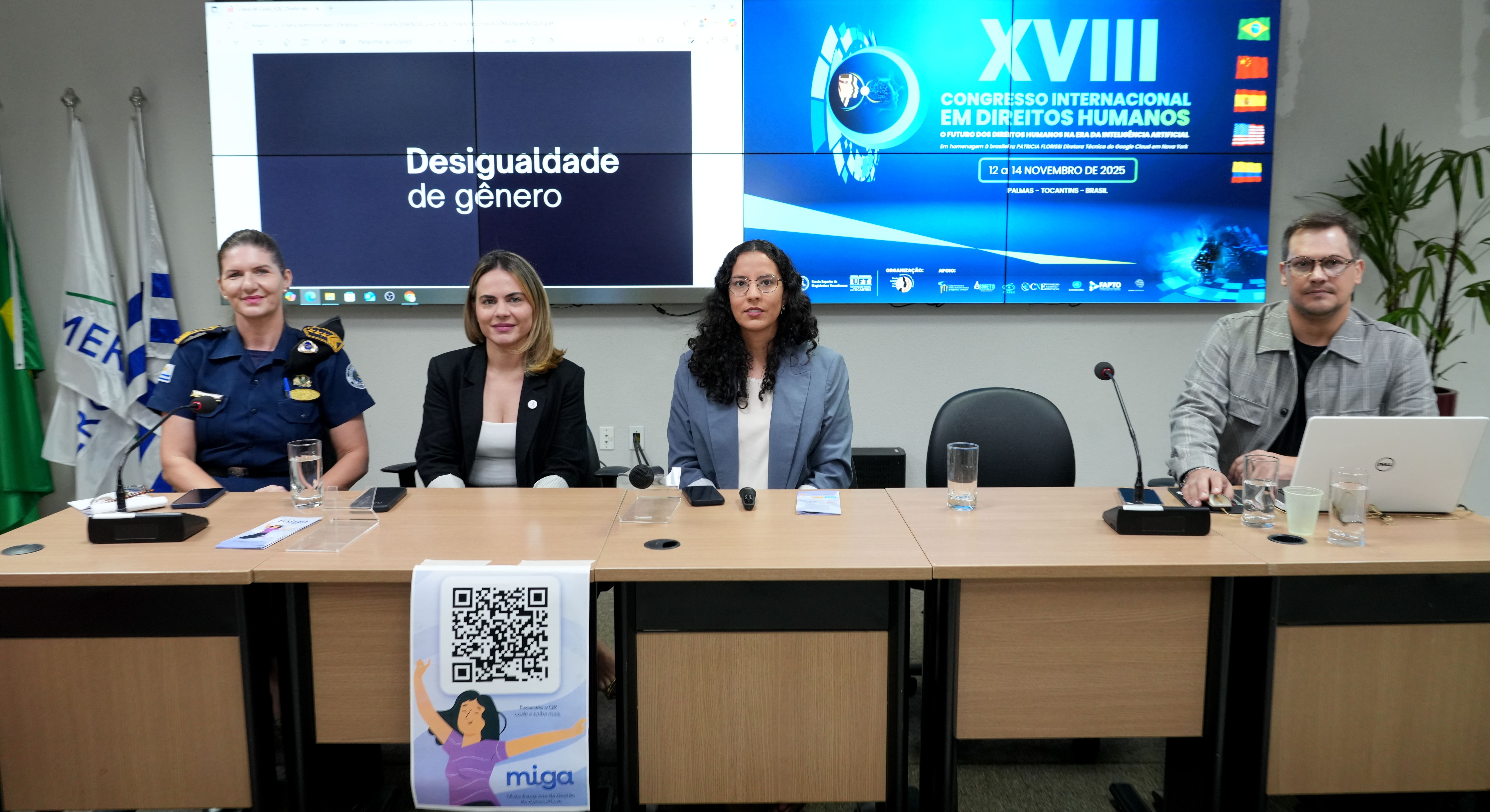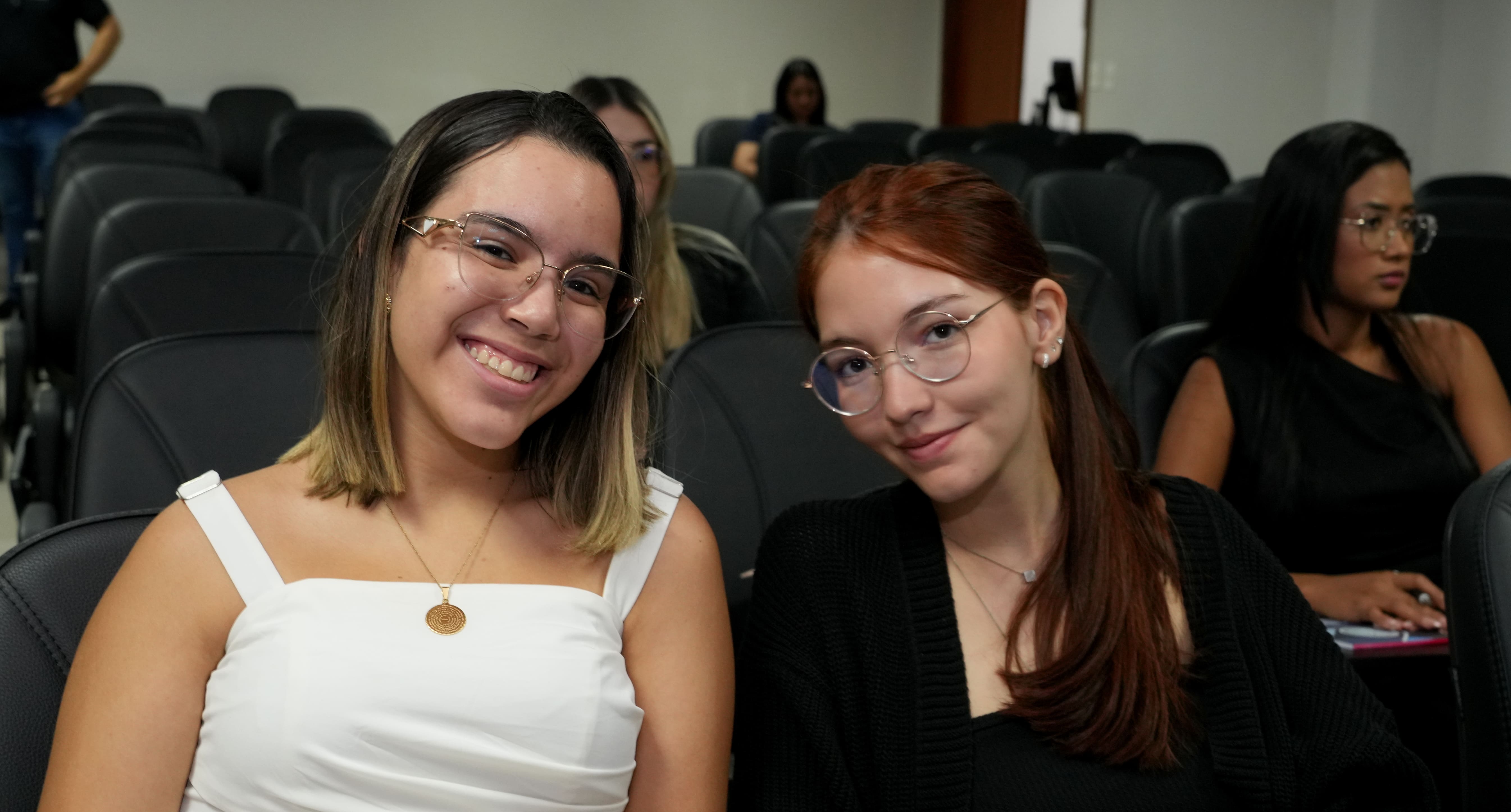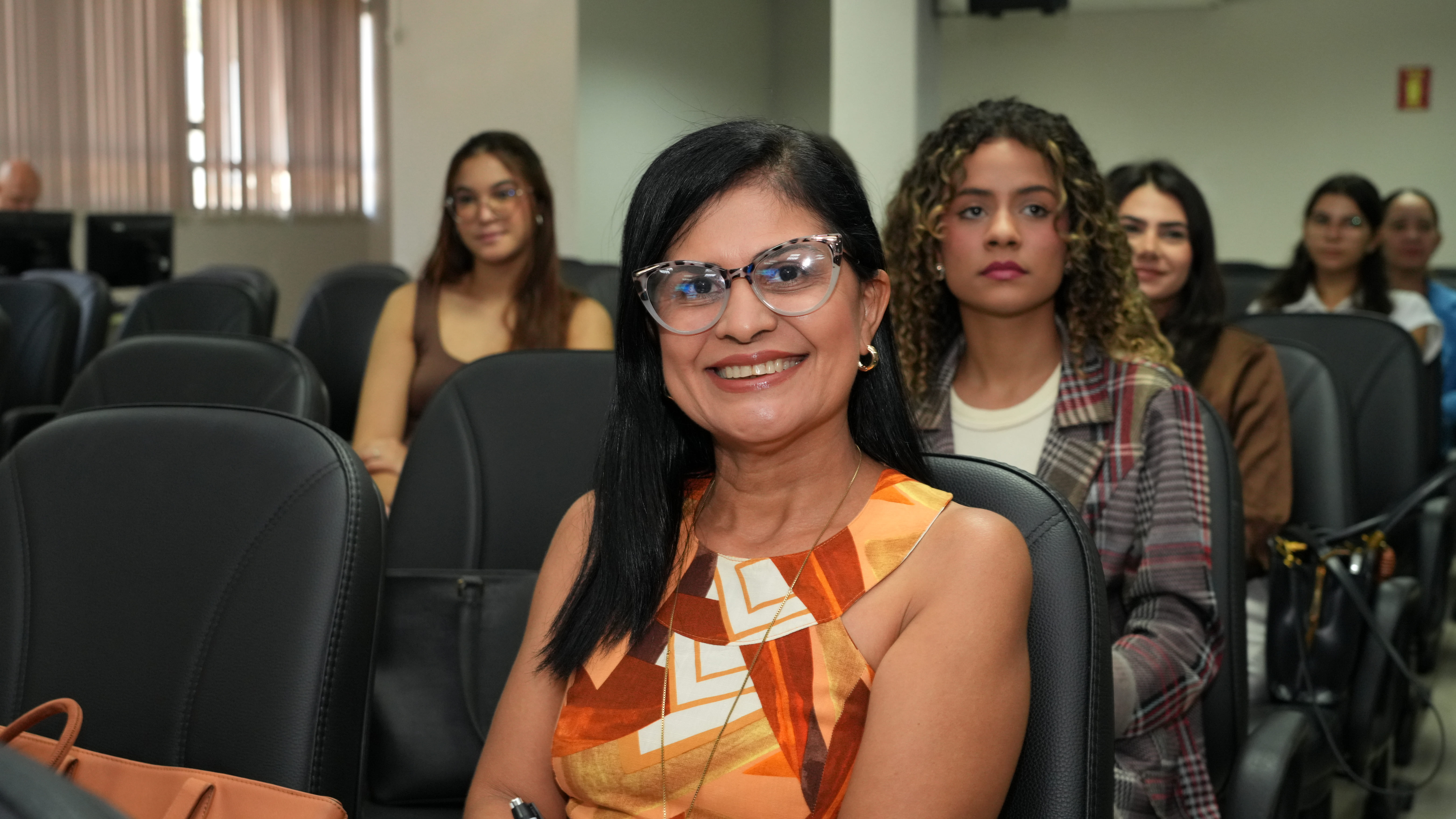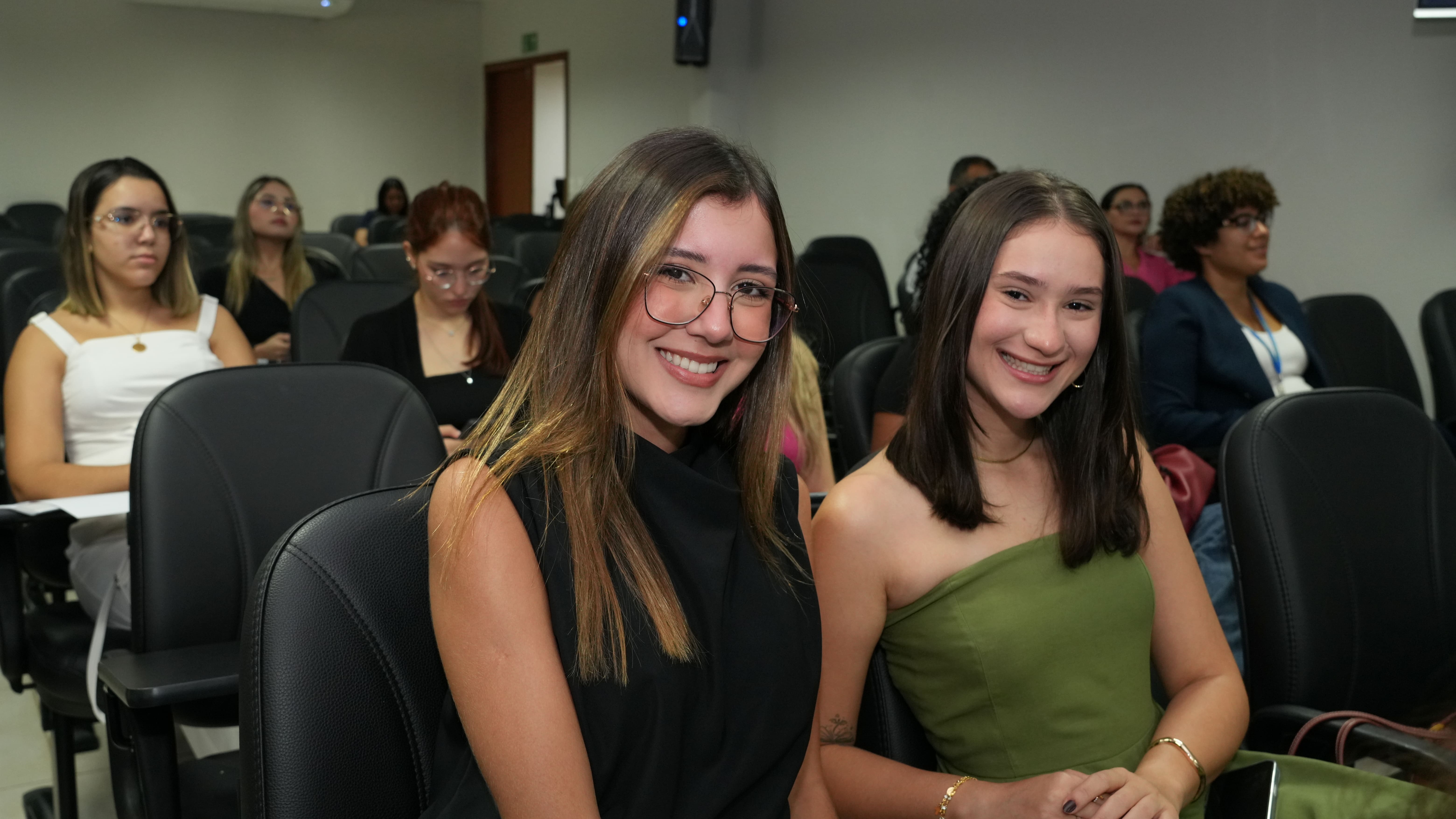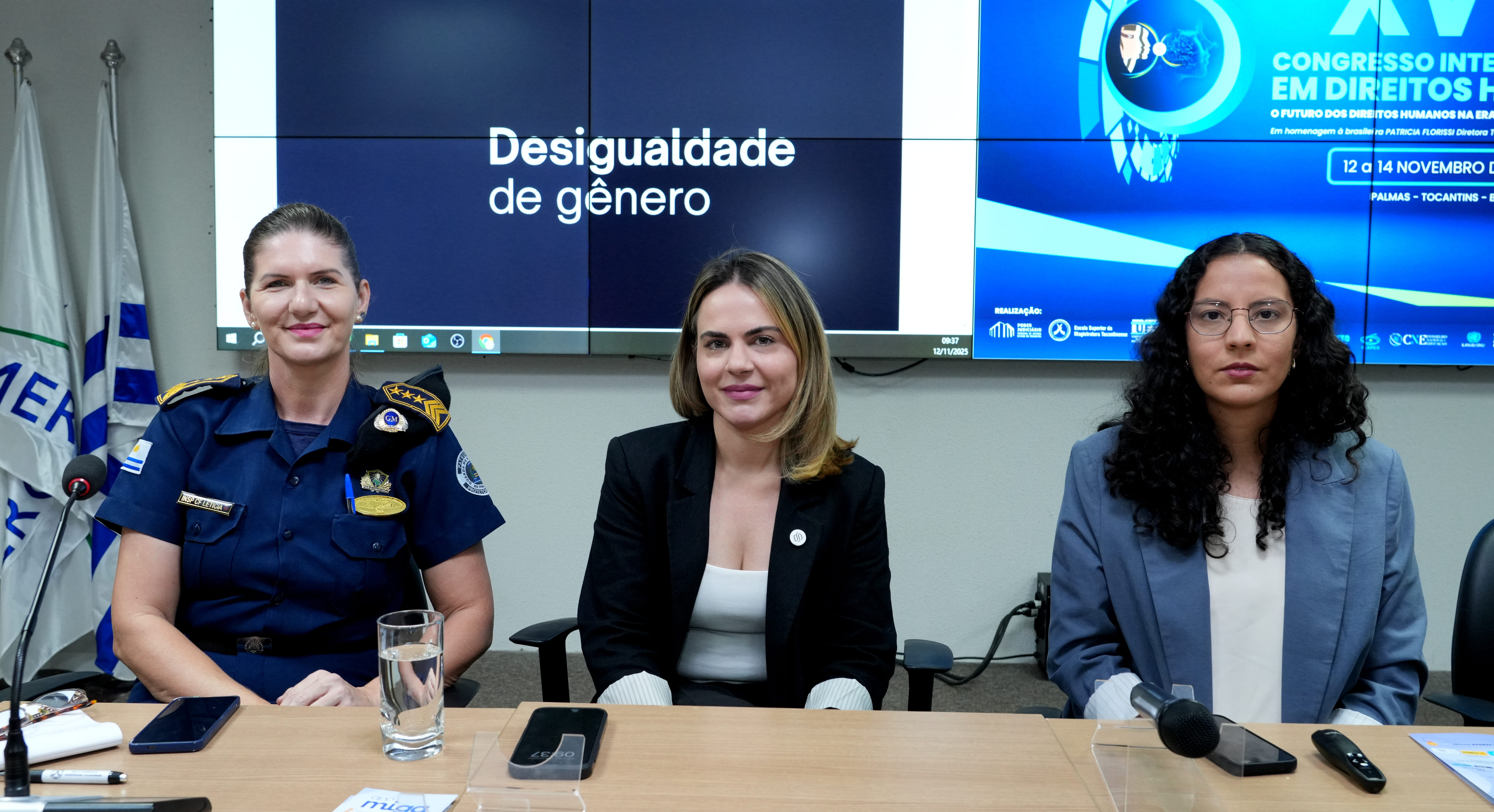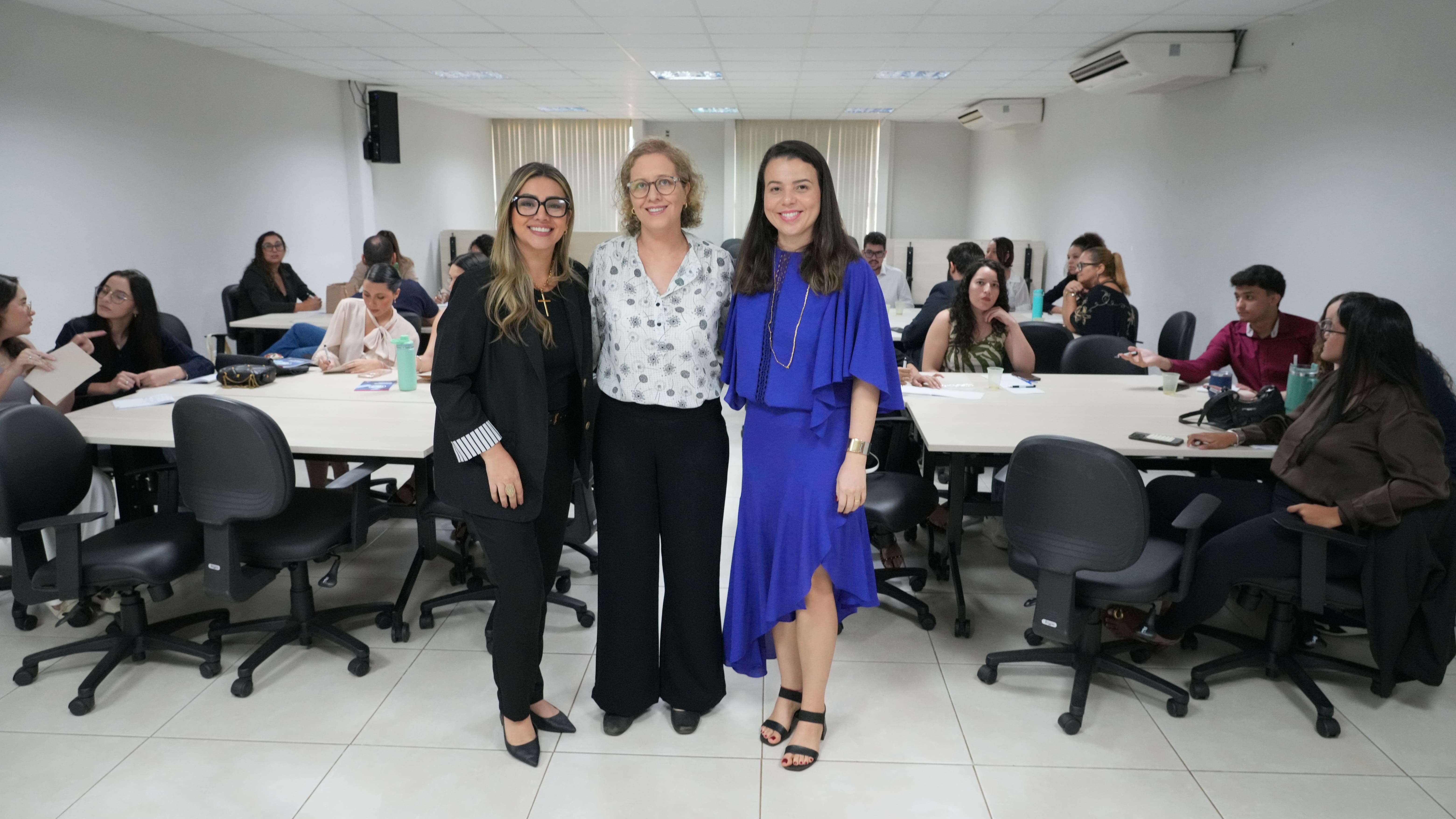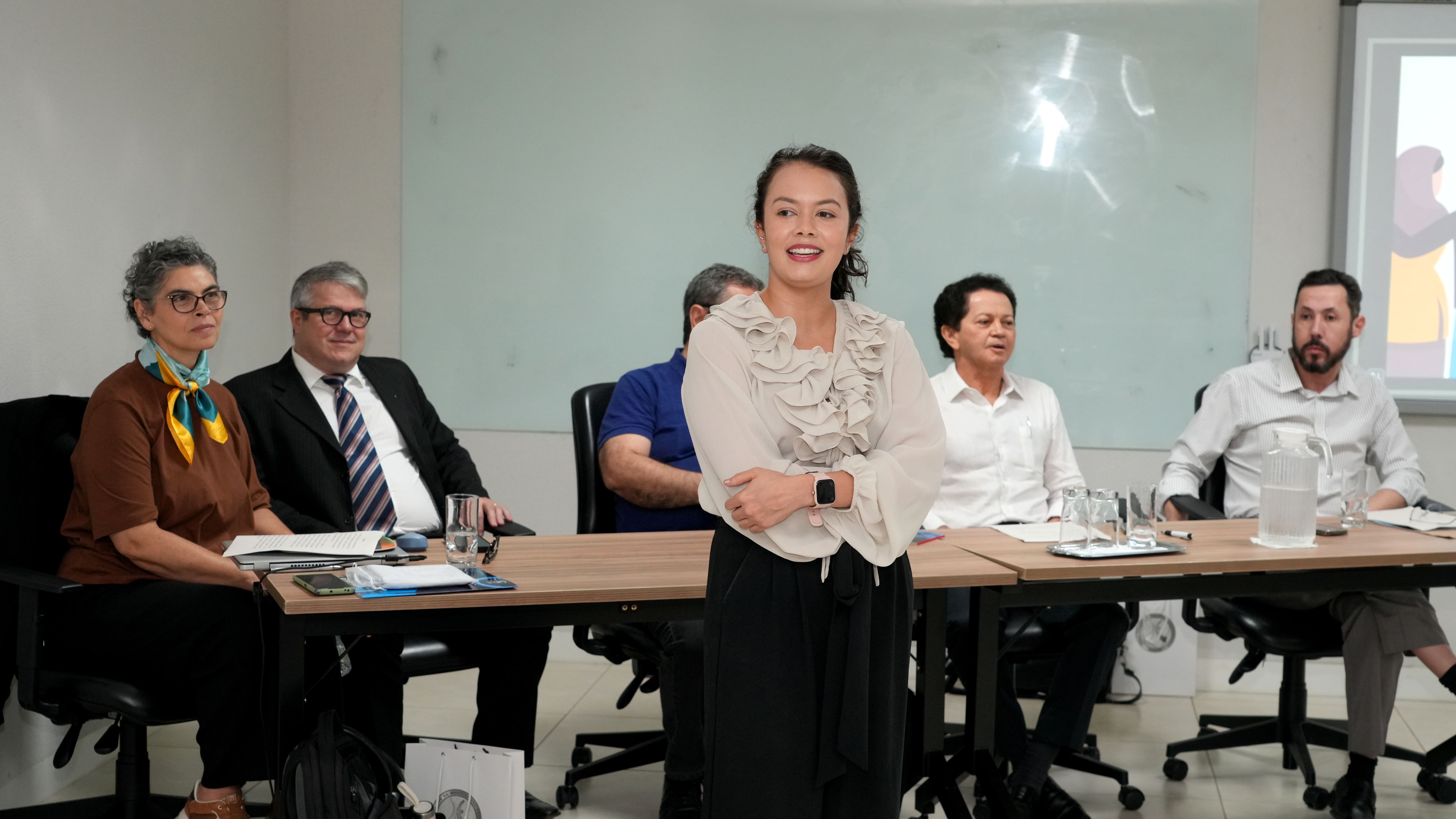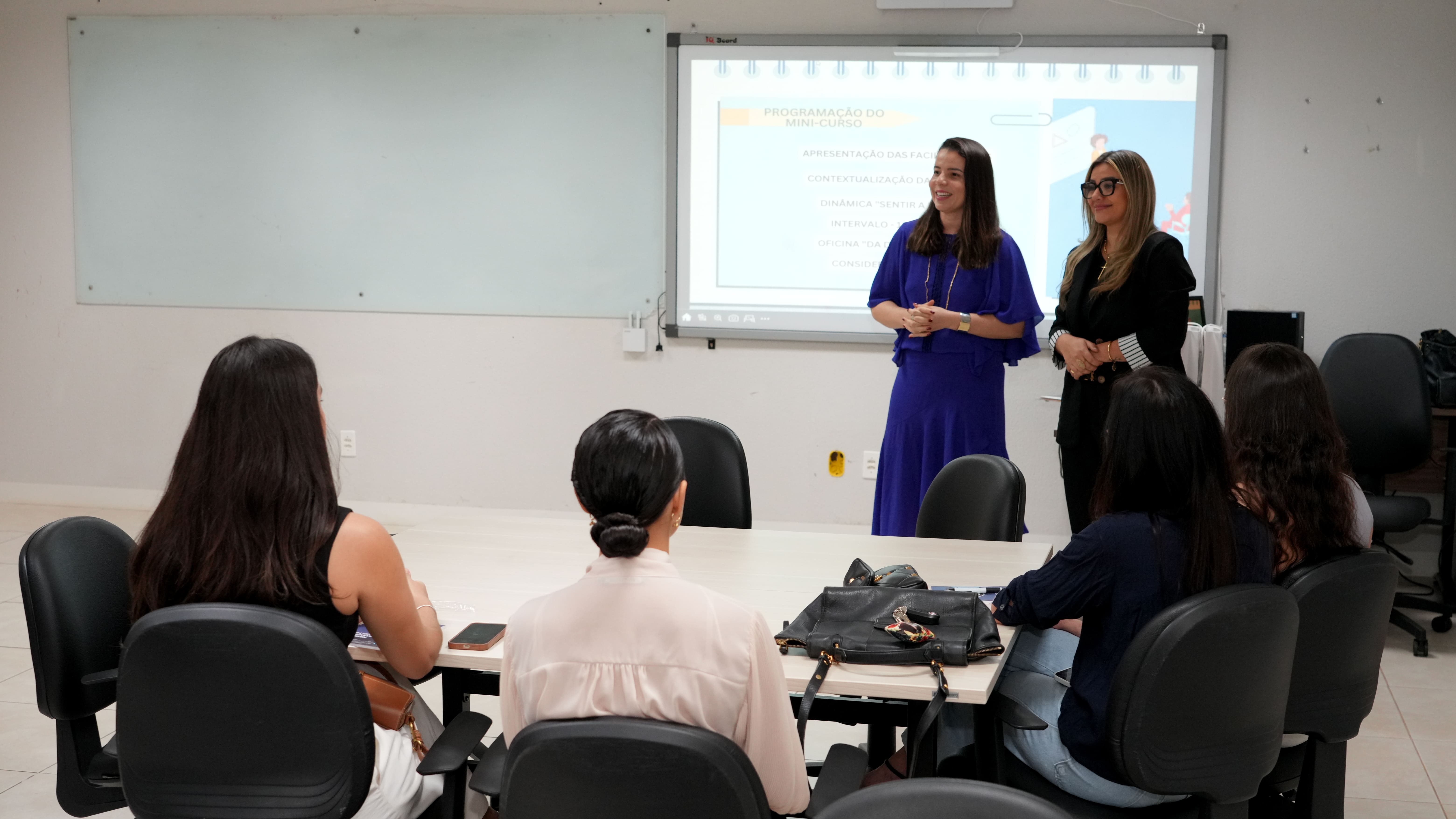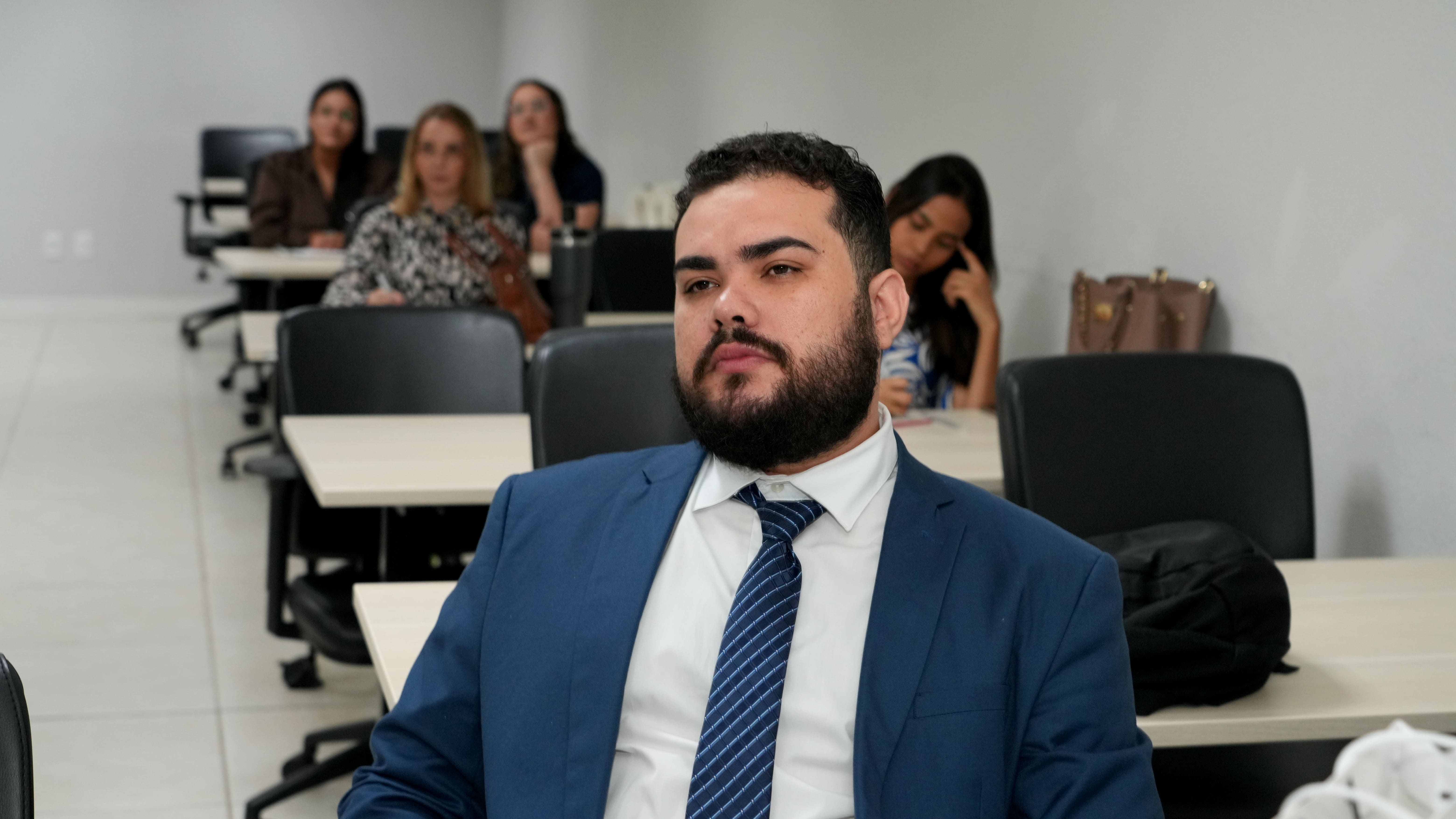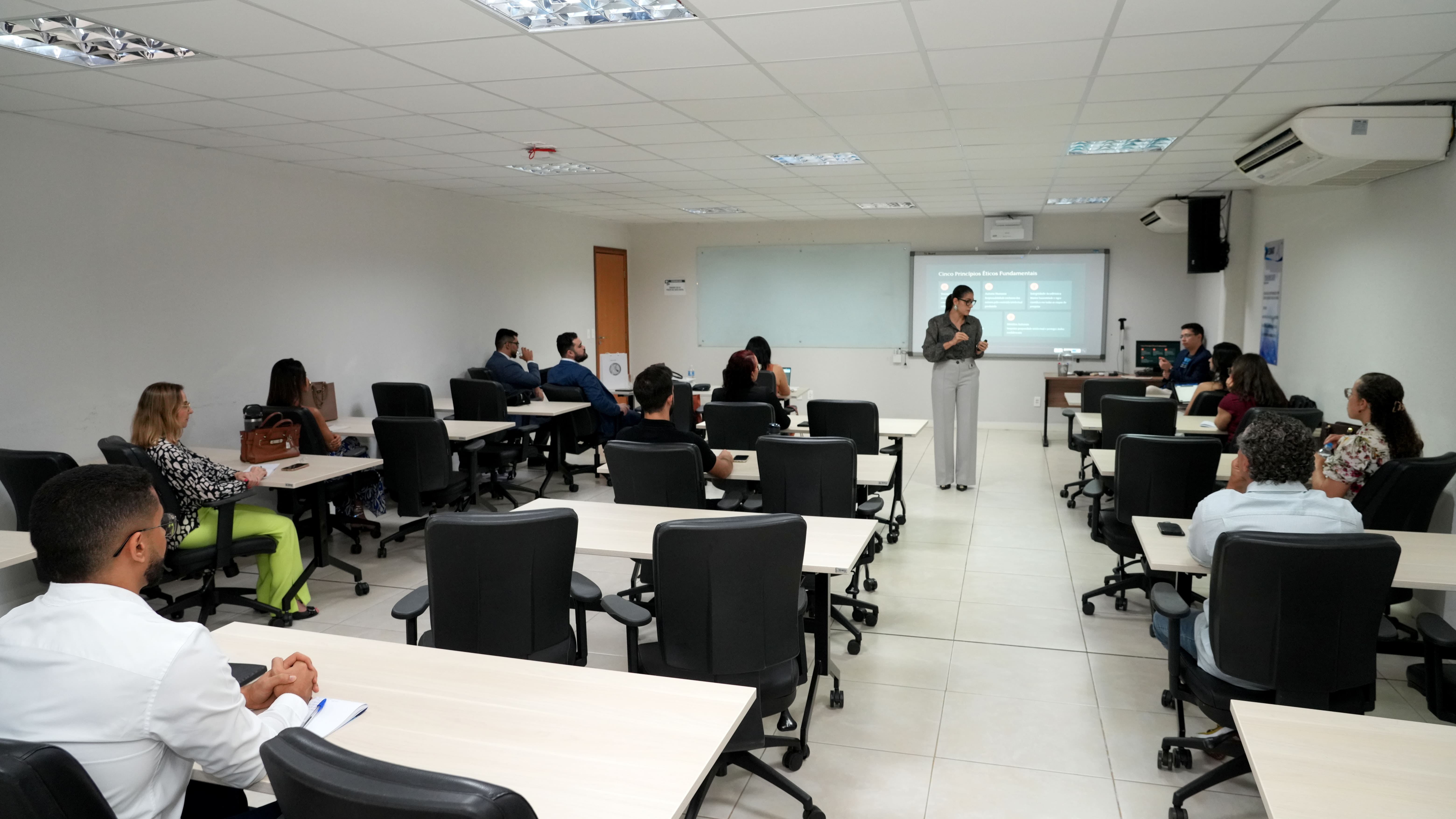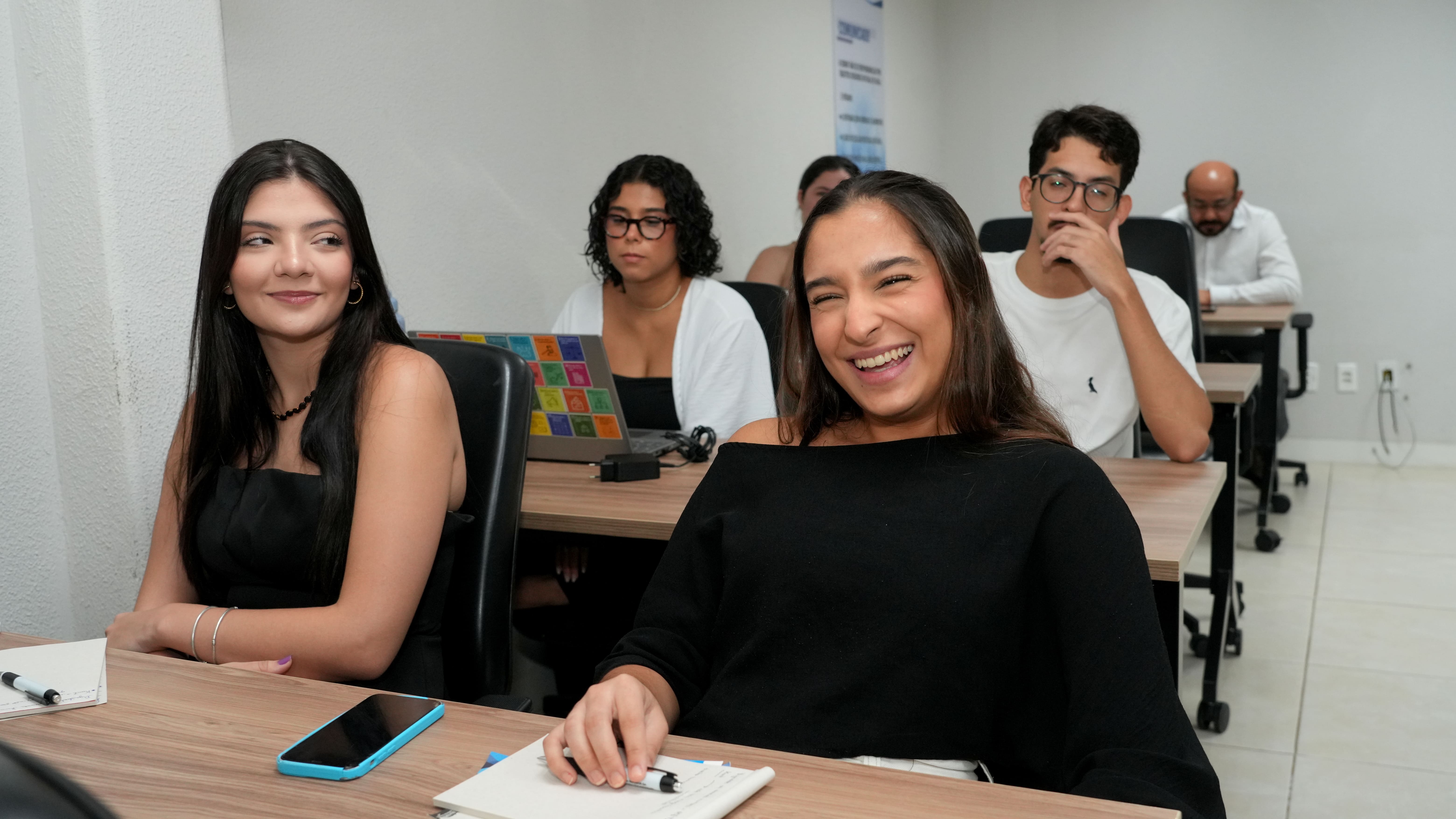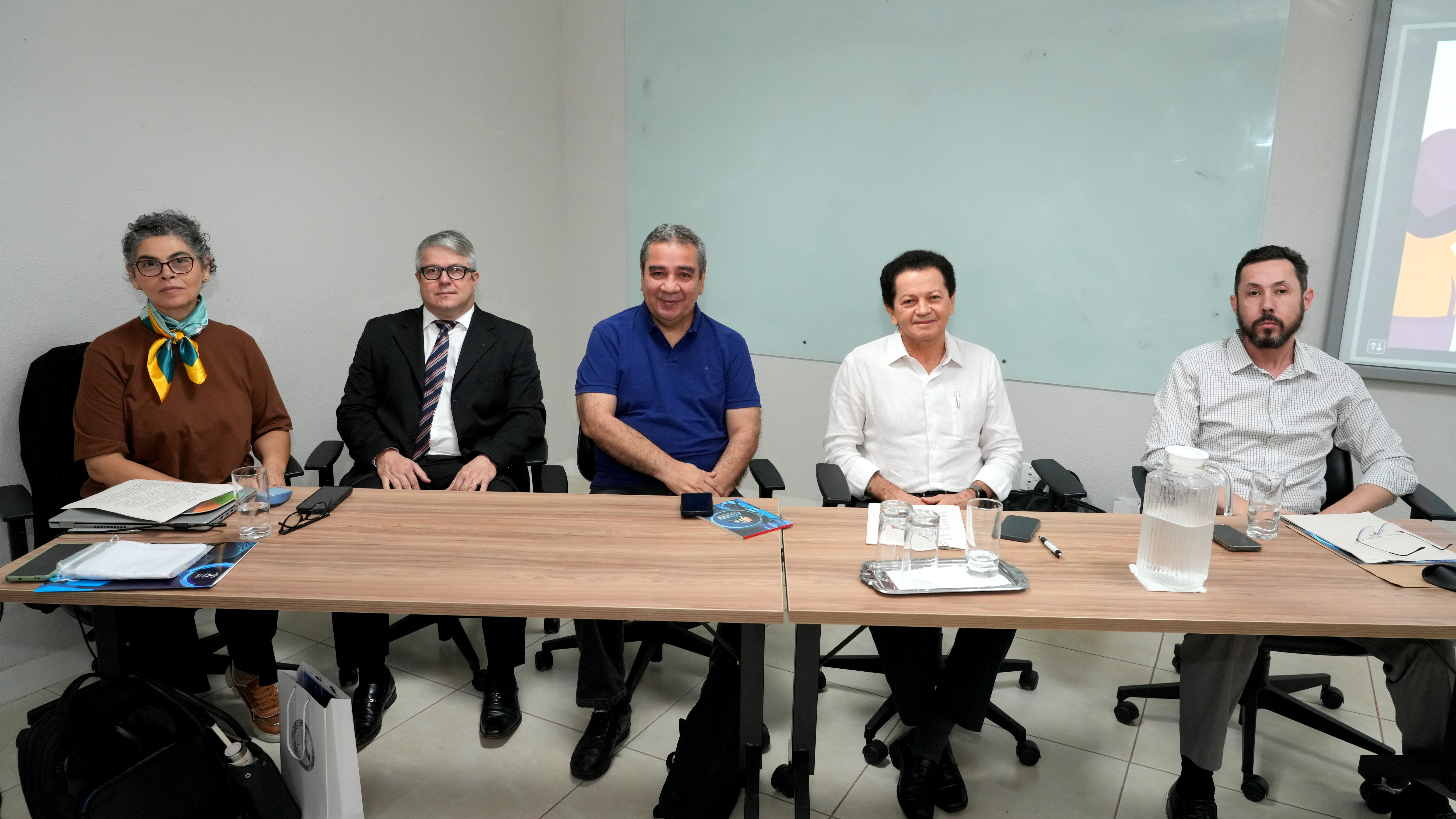The morning of the second day of the XVIII International Congress on Human Rights began intensely and productively, with six mini-courses taking place simultaneously. Five of them were held in classrooms at the Superior School of the Judges of the State of Tocantins (Esmat), while the last was held in the auditorium of the Court of Justice of the State of Tocantins. (TJTO).
Social Media and the Dignity of the Human Person
With powerful reflections, the mini-course on “Hate Speech on Social Networks and the Dignity of the Human Person” was led by a multidisciplinary team: doctoral student Lívia Zanholo Santos, doctoral student Wellington Gomes Miranda, judge and doctoral student Deusamar Alves Bezerra, judge and doctoral student Elcio Sabo Mendes Júnior, master's student Fabiano Gonçalves Marques, and Professor Patrícia Medina.
Lívia Zanholo began by proposing a philosophical and current discussion on human dignity, based on the Kantian thought. "Dignity is priceless. And time, for example, has a price? No. Like freedom, dignity cannot be quantified, much less relativized," she provoked.
She addressed how technology, while enhancing the exercise of freedom of expression, also facilitates the spread of hate speech, often naturalized by those who witness it.
"We are here today to provoke you into action. Because, even if we cannot go back in time and prevent technological advancement, it is possible to move forward by reflecting, criticizing, and seeking social and human solutions to the problems that arise with it," she pointed out.
During her speech, Patrícia Medina emphasized the importance of cooperation among institutions and cited the presence of Justice Elcio, from the Court of Justice of the state of Acre (TJAC), as a concrete result of the academic partnership among TJAC, UFT, Esmat, and Fapto, established in 2023. The agreement made it possible to open a master's degree program in Human Rights in the “off-campus” modality.
In his testimony, Justice Elcio, who was director of the Judicial School of the state of Acre in the 2023-2025 biennium and is participating in the Congress in person for the first time, shared his experience.
“Participating in this event is something that enriches me in terms of knowledge acquisition. Even better than that are the people who come to the event to assimilate this knowledge, which is debated and aggregated in an exchange of experiences. That's what's really worthwhile: this interconnection between humans and technology, but always with humans in control, not the other way around," he shared.
The content covered in the mini-course addressed the legal, social, and psychological impacts of hate speech and its direct effects on democratic coexistence. The proposal was to encourage a critical and ethical stance towards this increasingly frequent phenomenon on social media, in line with the promotion of human rights and diversity..
AI and Scientific Research
The mini-course on “Artificial Intelligence and Scientific Research: Ethics, Tools, and Best Practices” brought together students, researchers, and professionals from the Justice System to discuss the challenges of AI in academic production. The activity was led by Professor Liziane Paixão, PhD, master's students João Lucas Gomes Rabelo Aguiar and Gustavo Costa Folha, and specialist Igor Vasconcelos Barbosa de Mendonça. During her speech, Professor Liziane highlighted the importance of the conscious use of these technologies.
"It takes time and patience to deal with Artificial Intelligence, because its use requires continuous dialogue. Without proper care and monitoring, the tool can make mistakes, even when handling sensitive data," she warned.
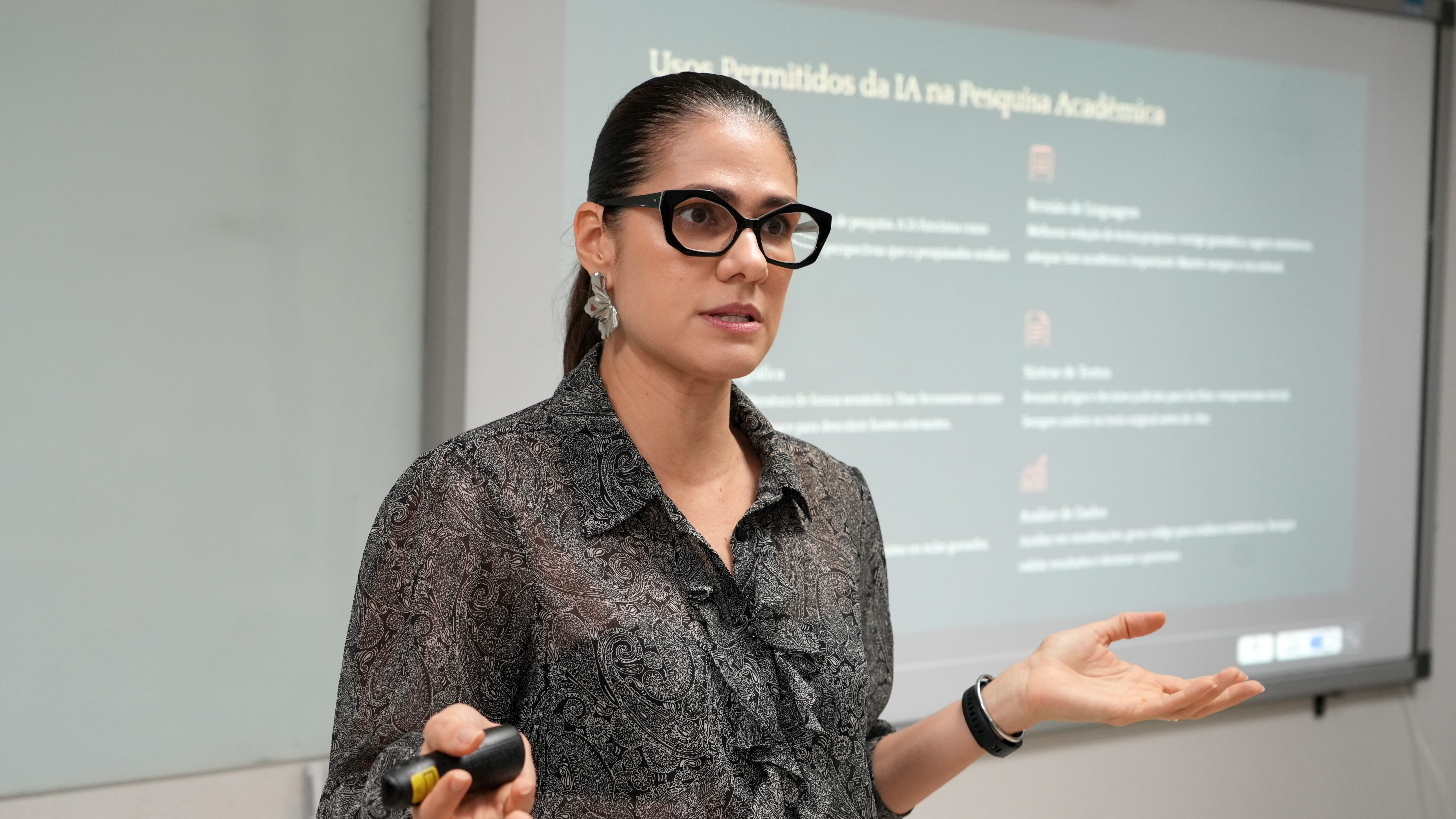 She highlighted a change in the challenge for researchers: whereas in the past the problem was finding study material, today the issue is the large amount of information available and the difficulty in deciding where to start.
She highlighted a change in the challenge for researchers: whereas in the past the problem was finding study material, today the issue is the large amount of information available and the difficulty in deciding where to start.
Among the topics covered were the construction of more effective prompts, the comparison of these commands with a “Terms of Reference” provided to intelligent systems, quality criteria for evaluating results, as well as guidelines on documenting the use of AI, validating generated content, and how to declare the use of the tool at work. Participants also learned about an ethical workflow model for AI-supported research, which proposes safer and more transparent methodological steps.
Judicialization of Health
With an engaged and active class, the mini-course on “Judicialization of Health, Vulnerability, and Artificial Intelligence” promoted an interdisciplinary and sensitive debate on the challenges faced by people who turn to the Judiciary in search of health care. The activity was conducted by Professor Naima Worm and Masters Carla Regina Nunes dos Santos and Bhonny Soares de Sá. The idea was to present the Judicialization of Health as a phenomenon that goes beyond technical and legal issues, requiring a careful look at the vulnerabilities and subjective suffering of those who experience this process.
During the conversation, participants shared experiences that illustrate the emotional effects caused by waiting or difficulty accessing basic rights, such as treatment or medication. Institutional challenges, procedural delays, and the importance of empathetic listening in judicial decisions were also discussed. In her testimony, Professor Carla highlighted the purpose of the meeting.
“It aims to amplify the voices of people who turn to the Judiciary as a last resort. It is the urgency of their lives knocking on the door of this system still marked by bureaucracy and slowness. And it is really a gesture of resistance that we wanted to bring here. An invitation for the judiciary to judge with more humanity, to listen with more empathy,” she said.
The mini-course also addressed the ethical use of Artificial Intelligence as a tool to support the Judiciary, especially in health-related cases. AI was presented as an ally in screening, data analysis, and procedural agility, provided, of course, that its use respects ethical principles and preserves the centrality of human beings. In this sense, Bhonny reinforced the importance of intersectoral action and the need for qualifications, such as those promoted by Esmat:
“Science communicating. We talk about technology, but in a system like ours, the solution takes time. Qualification and education are the first paths. Where it is working is where there has been intersectionality, where there has been that communication among areas.”
One of the reflections brought up by the class itself, during the sharing of experiences and cases, it was the citing of Carl Jung: “Know all the theories, máster all the techniques, but when touching a human soul, be Just another human soul”.
Technology as an ally in tackling gender-based violence
In the mini-course on “The Use of Technology as a Tool to Combat Domestic and Family Violence Against Women,” Professor Stella Bueno Pedroso do Nascimento, postdoctoral researcher Jessica Hind Ribeiro Costa, and Professor Aloisio Bolwerk led an interdisciplinary discussion on how technology—including artificial intelligence—can become a powerful ally in protecting women in vulnerable situations.
Professor Stella emphasized the importance of bringing education and technology closer together for women: "Especially for us women, the most important thing today is to understand that education cannot be dissociated from technology. [...] This is an incredible tool that has already saved the lives of many women.
In addition to addressing the technological tools already available, such as virtual assistants, monitoring systems, and reporting channels, the mini-course also reflected on forms of digital violence (such as virtual harassment, deep fakes, and cyberstalking) and gender stereotypes reproduced by female-voiced assistants.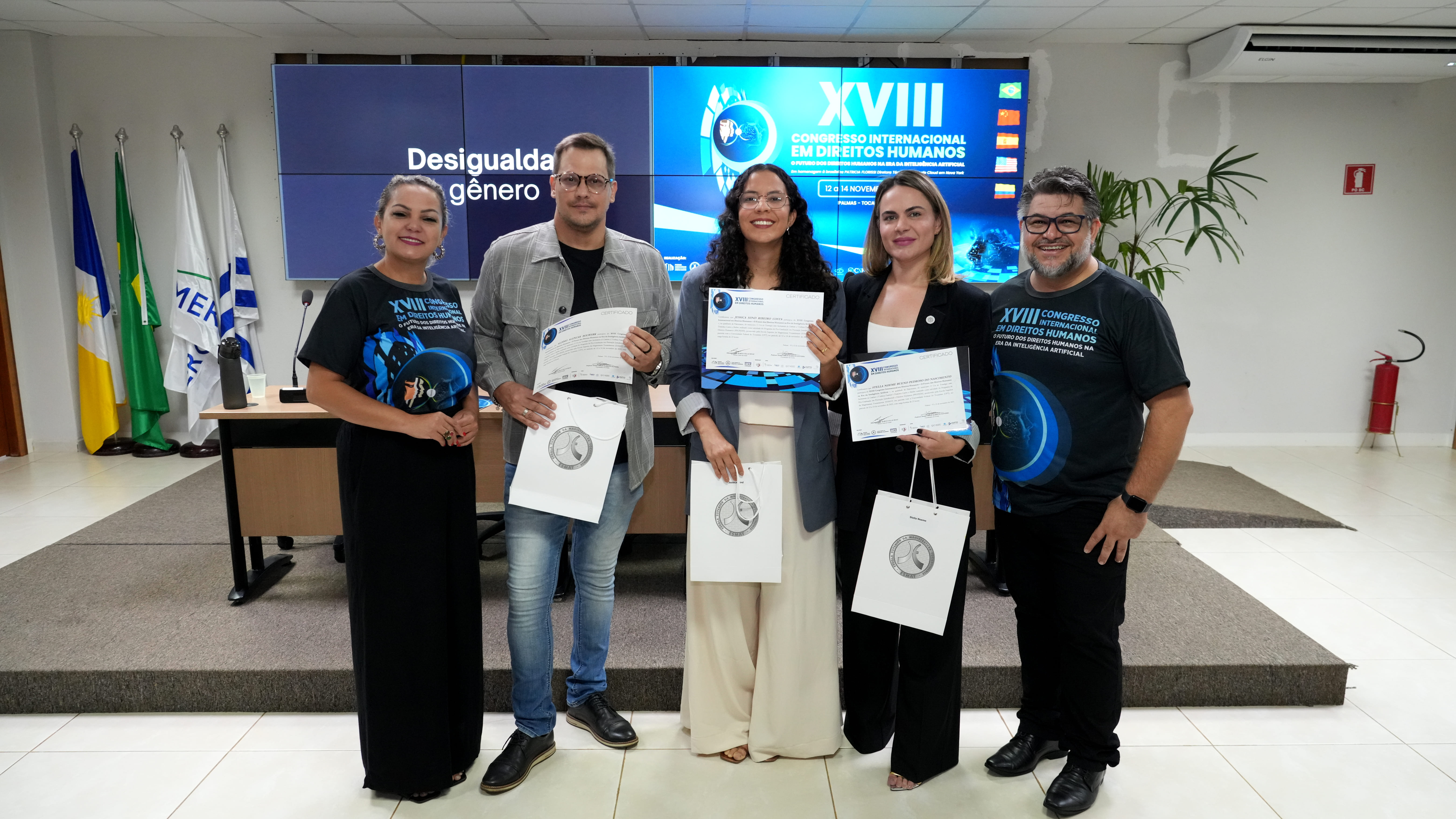
The discussions also addressed the low representation of women in areas such as programming and engineering and the importance of encouraging more women to participate in these fields. The debate also pointed to the need for coordination among institutions (the Judiciary, the State Prosecution, the Public Defender's Office, and security forces) and the ethical use of technology in assisting victims. For the facilitators, rather than combating violence, it is necessary to prevent it and promote a culture of equity, with special attention to the humanization of services and the overcoming of historical inequalities.
Access to Justice in Technological Times
In the mini-course on “Access to Justice in Technological Times,” the debate revolved around the transformations caused by digital innovations in the Judiciary, especially the use of AI as a tool to expand access to Justice. Led by Professor Antônio Carlos dos Santos, PhD candidate Juliana Silva Marinho Guimarães, attorney and master Maria Cotinha Bezerra Pereira, and PhD candidate Paulo Alexandre Rodrigues de Siqueira, the activity presented contemporary challenges related to technology and the effectiveness of fundamental rights.
Professor Antônio Carlos provoked reflection with an essential question: “How do we enable this access? And what is the role of AI in this process?” He emphasized that the discussion on Artificial Intelligence cannot be dissociated from a larger problem, which is real and equal access to Justice.
Prosecutor Maria Cotinha emphasized that “humanity has always been interested in progress,” highlighting the value of information as power and the potential of AI in the Justice System, such as process automation, the use of big data to identify patterns and trends, and the extraction of relevant information from large volumes of data.
Participants discussed the impact of judicial informatization in Brazil, the traditional and digital barriers that still persist, and the risk of deepening social exclusion in the face of information asymmetries. For the president of the Academic Law Center of the UFT, Matheus Dutra, who followed the debate, “the mini-course was extremely enriching! The use of technology, especially AI, was addressed from various angles, based on morality, ethics, and human dignity.”
International Mini course
The mini-course on Artificial Intelligence, Penal System, and Human Rights, held in the auditorium of the TJTO, promoted a critical analysis of the impact of artificial intelligence on the penal system, highlighting the ethical, legal, and social risks involved. The activity began with the remote participation, directly from China, of Professor Zhao Shuhong, who addressed the implications of using AI in cases related to self-harm, highlighting the ethical dilemmas of automated intervention in sensitive contexts.
Professor Tarsis Barreto then continued the reflection, deepening the discussion on the challenges of applying algorithms in criminal decisions and the risks of structural discrimination resulting from algorithmic biases. Topics such as the lack of transparency in automated systems, known as “black boxes,” and the importance of ensuring “due technological process” in criminal matters, which guarantees fundamental rights and preserves human dignity in the use of these tools, were also discussed.
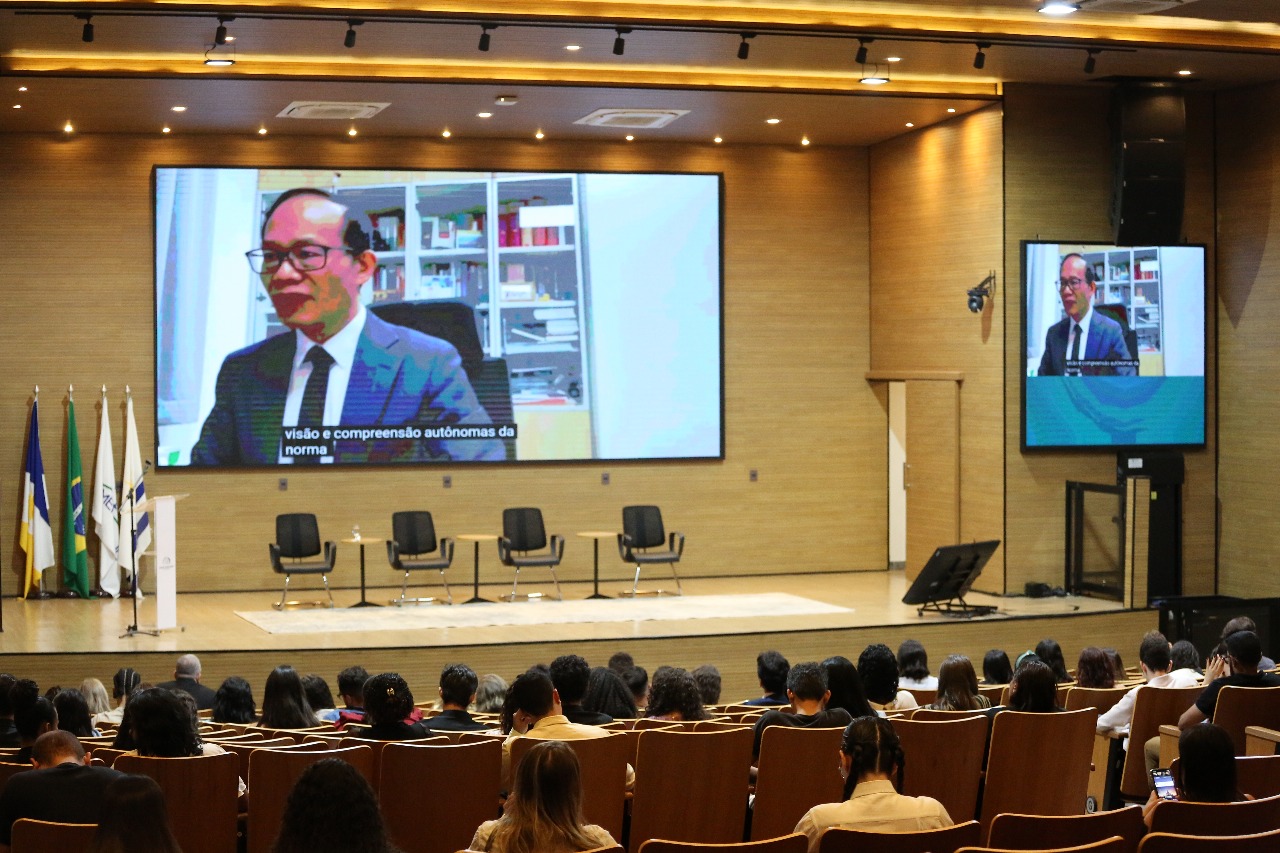 Academic Ana Laura de Oliveira, who participated in the activity, reinforced the relevance of the debate: “It was a very important speech. Professor Tarsis brought a very interesting point of view on the penal system and AI, and we need this legal foundation to handle the tool. It was very enriching for us, because Law is becoming increasingly technological and we need to adapt.”.
Academic Ana Laura de Oliveira, who participated in the activity, reinforced the relevance of the debate: “It was a very important speech. Professor Tarsis brought a very interesting point of view on the penal system and AI, and we need this legal foundation to handle the tool. It was very enriching for us, because Law is becoming increasingly technological and we need to adapt.”.
Programming
With the mini-courses now complete, the programming of the Congress continues this afternoon (November 12th), entirely at the TJTO, with the official opening ceremony scheduled for 5:30 p.m. Registrations begin at 4:30 p.m. Participants from interior districts and other States will be able to watch the live broadcast on the Virtual Academic Secretariat of Esmat (SAV) at the same time.
If you are from the city of Palmas, here's a tip: Arrive early to register without rushing and secure a good seat in the auditorium.
In addition to the authorities confirmed for the ceremony, the opening will feature a virtual conference by Brazilian Patricia Florissi, who is being honored at this edition.
And the next days?
On November 13th and 14th, the Congress continues with thematic panels, presentations of academic papers, and new conferences.
- The complete programming can be accessed here.
- The list of papers approved for the 13th is available on this link.
Esmat will provide the supports for attaching the banners, but the researchers are responsible for producing the material. The banners must be attached at least 30 minutes in advance:
- Group 1 must attach their work by 8:30 a.m.;
- Group 2, between 12 and 2 p.m.
At least one author must be present during the evaluation period to answer questions from the panel.
Abou the Congress
Consolidated as the largest event of Esmat, the International Congress on Human Rights is held in partnership with the Federal University of the state of Tocantins (UFT) and, in this edition, it has the support of institutions such as Copedem, Axia Energia (former Eletrobrás), Fapto, Capes, Asmeto, CNE, and ILANUD/UN.
The general coordination is carried out by Justice Marco Villas Boas, general director of Esmat and president of Copedem. The scientific coordination is carried out by Professor Tarsis Barreto Oliveira, coordinator of the Post Graduation Program in Judicial Provision and Human Rights. (PPGPJDH/UFT).




_thumbnail.jpeg)
_thumbnail.jpeg)
_thumbnail.jpeg)
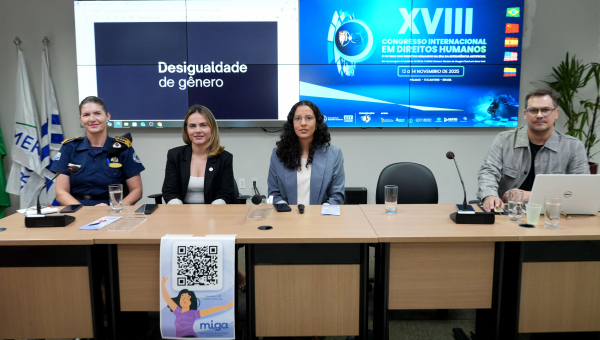
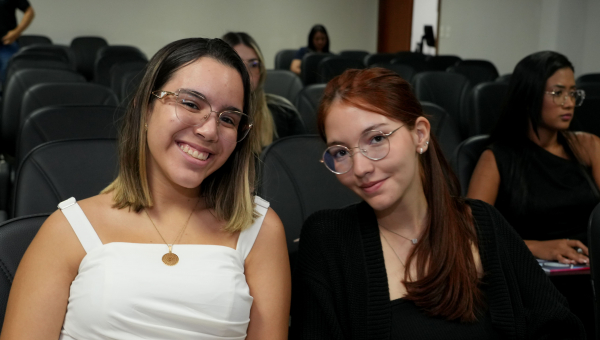



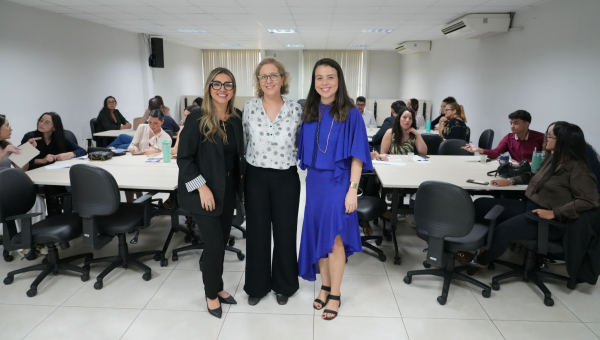
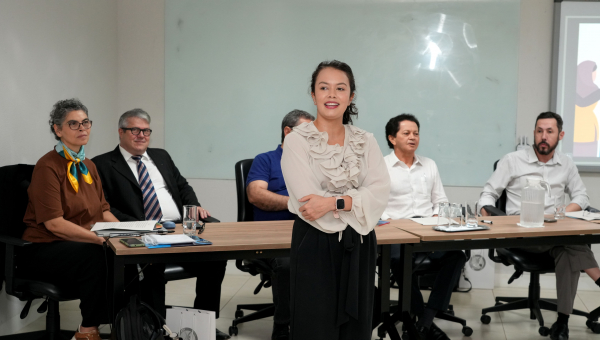
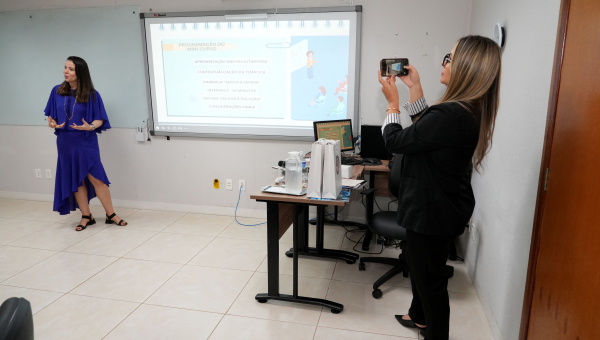
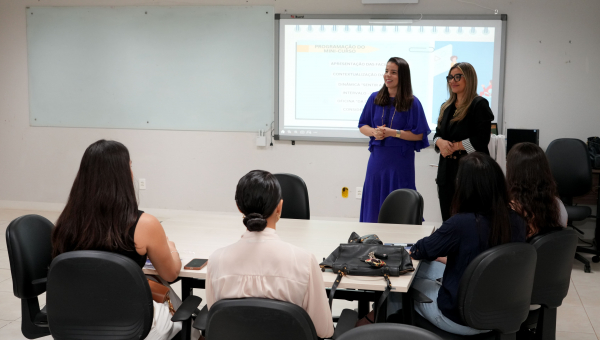
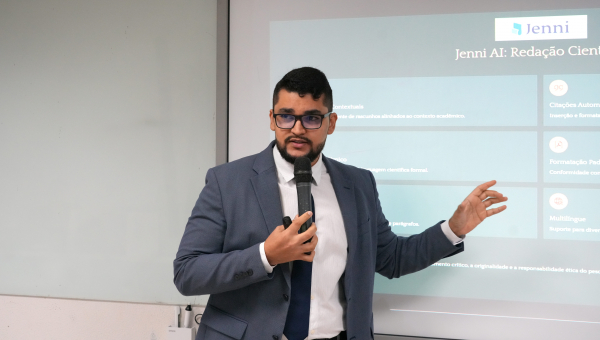

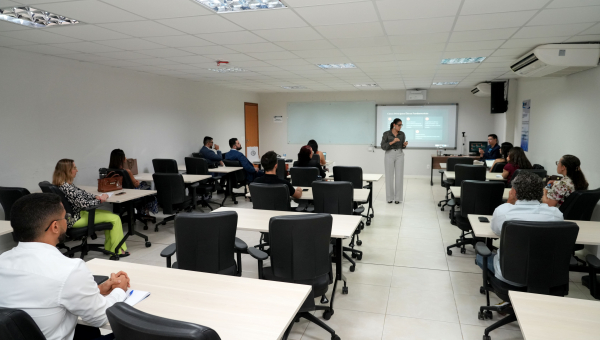
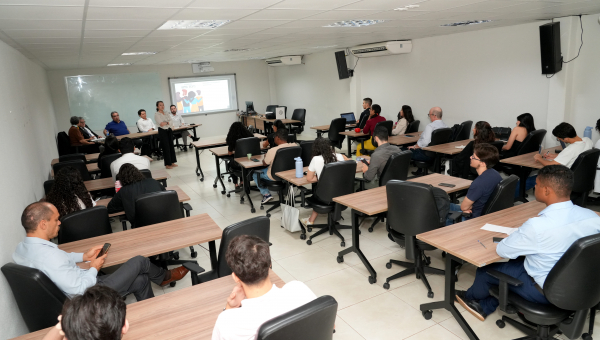
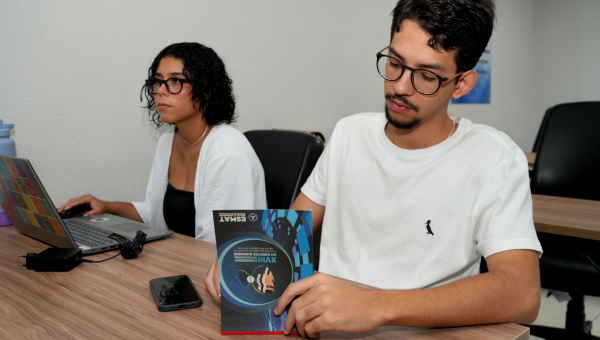
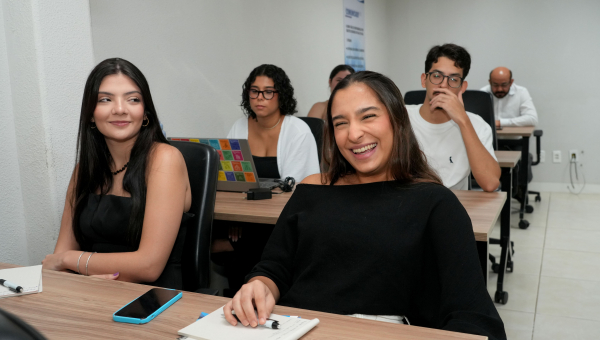
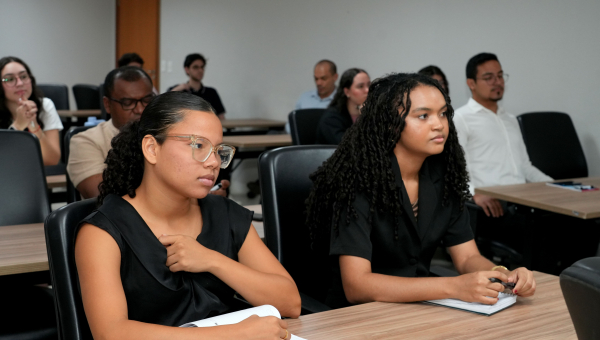
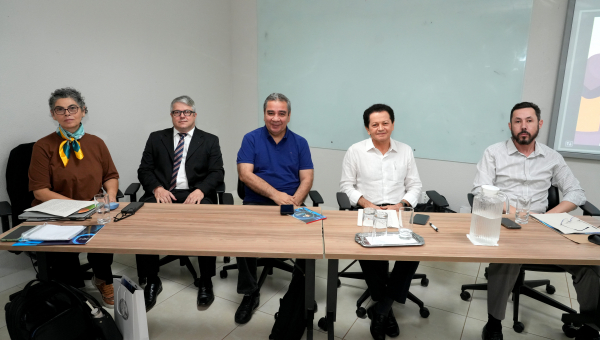
.jpeg)
.jpeg)
.jpeg)
